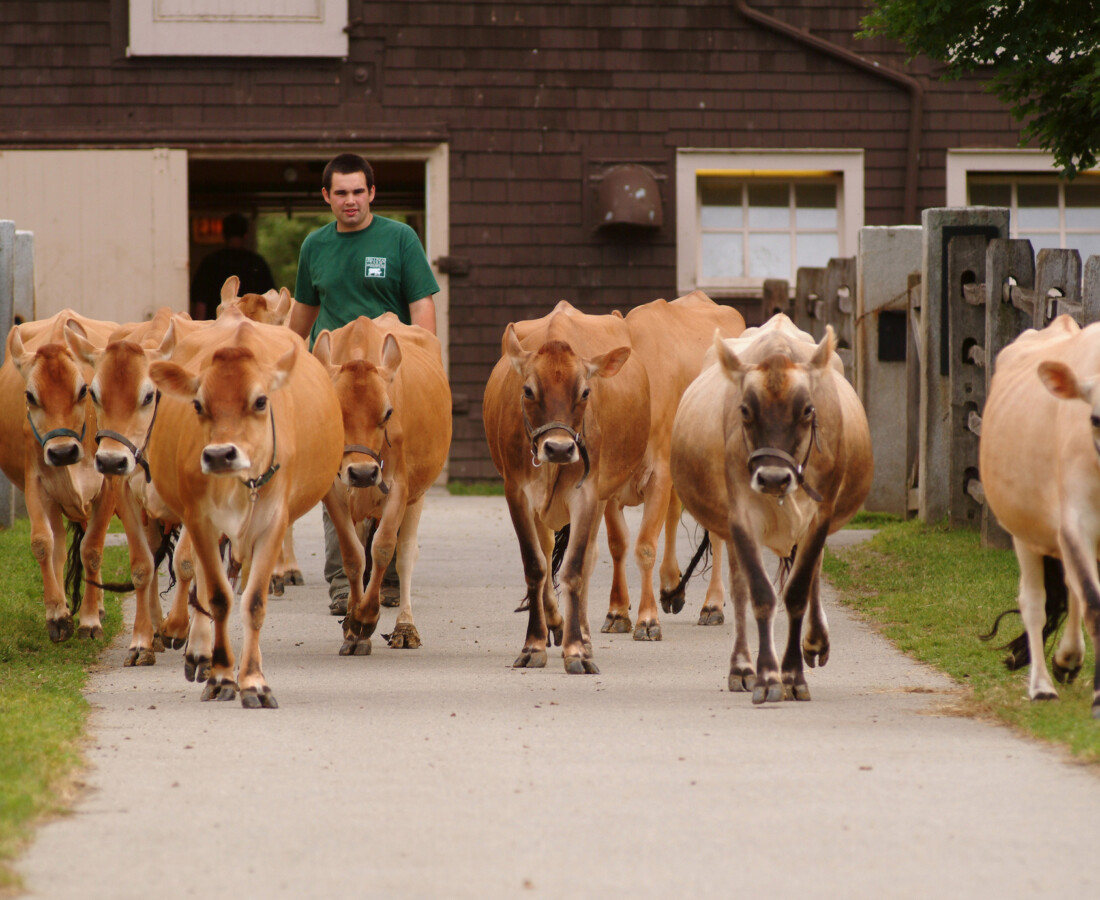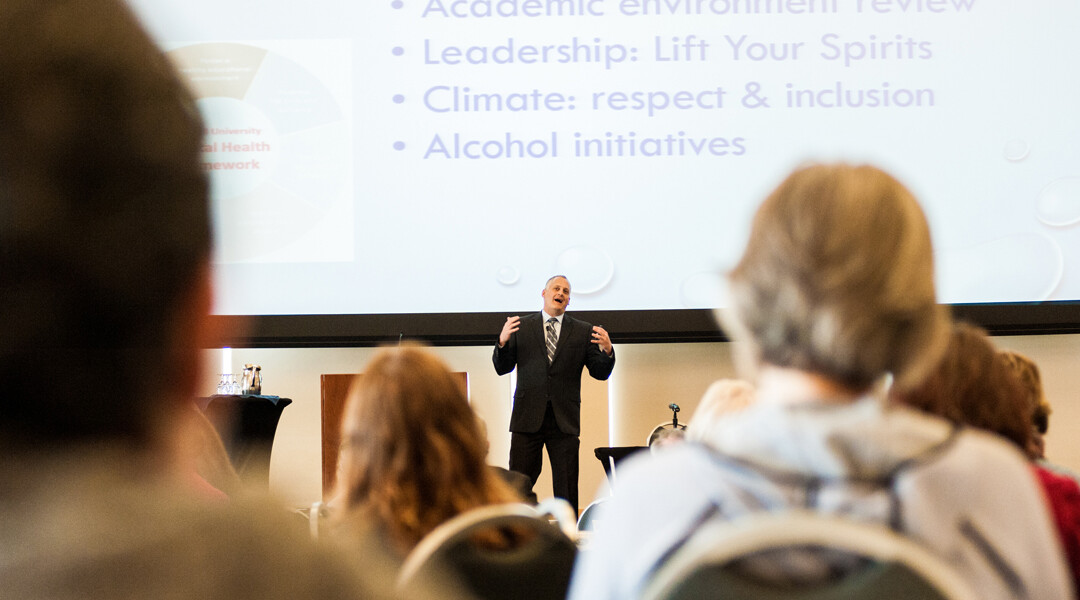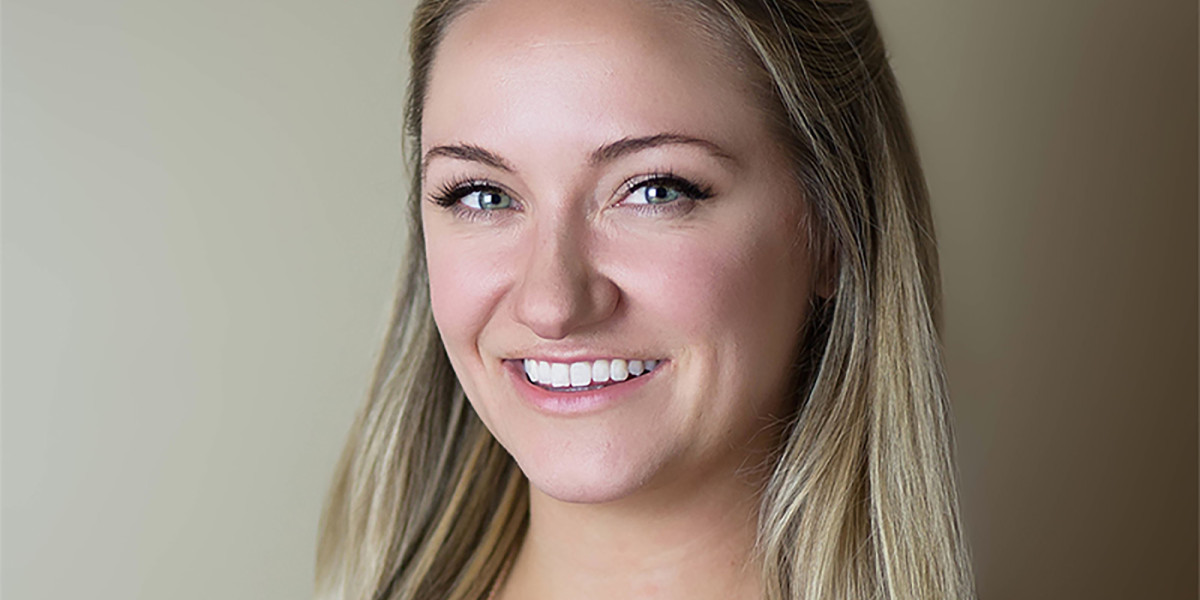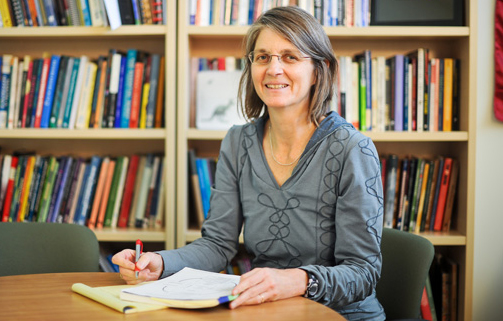By John M. Turner
Cabot Creamery is a cooperative that has been owned by dairy farmers since 1919. From those early days when 94 farmers from the Cabot area in Vermont, joined forces to turn their excess milk into butter, the cooperative by its very nature worked for the common good of the farmers, the community, and the land they worked.
The farmer-owners initially marketed their dairy products throughout New England and subsequently far beyond, and today Cabot has won many major awards including “World’s Best Cheddar.” They operate four creameries – two in Vermont, one in New York and one in Massachusetts, and are a certified B Corporation.
Cabot blends state-of-the-art facilities with a unique, resilient Vermont entrepreneurial spirit to not only produce world-renowned dairy products, but also maintain a commitment to quality, community, democracy and local ownership, supporting the places where their members, families and consumers live and do business.
Jed Davis, Cabot’s Director of Sustainability, tells us what it means to be a sustainable organization.

What does being a sustainable company mean to Cabot and yourself?
JD: We are trying to achieve a balance of the environmental and social elements, but also the economics. There are a lot of things relating to the business side beyond what a single farm or cooperative can address themselves. So for Cabot, our cooperative heritage means we have always followed the idea of trying to help family dairy farms prosper. This has a positive impact on the fabric of our rural communities. I myself grew up on a 6th generation dairy farm in Massachusetts, and our farmers are local school board members, the town moderators or on the volunteer fire department. They have a unique vantage point in understanding from a sustainable perspective, what is the impact of working on the land.
Cabot has a sustainable pledge, how do you honor that pledge?
JD: The pledge has evolved over time to drive what we would like to accomplish and simply put means living within our means and ensuring the means to live. We’re simultaneously interested in being good stewards of limited, finite resources, while at the same time we recognize the need to innovate and develop new ways to do things that help the dairy farm and neighboring communities; this ensures we have the means to live. That if we all do this together, follow these principals, a rising tide lifts all boats. It is one of the seven principles of the co-op that it is incumbent upon us to give back to the community in which you do business and operate. We take that philosophy very seriously.
Any examples of sustainable projects you have been able to implement in your operations?
JD: Great question, as we are planning to move later this year as we’ve outgrown our current offices. The move gives us the opportunity to be more thoughtful as we migrate into the new space. We currently compost and have done a lot of interesting work with Casella. When you think of Casella you usually just think of them picking up the trash from your home or office, however we’ve been piloting a solar powered trash compactor, and will continue with more initiatives like this when we move.
In many cases some of the best ideas come from our employees and farmers. These are the folks actually doing the work so they often have the best perspective on how to improve our sustainable efforts.
Are your collaborative sustainability efforts reducing your competitive advantage though?
JD: We realize that when it comes to sustainability we can do our part, but there are elements that are just beyond any one organizations reach. It is incumbent upon us to think in terms of the whole system and do everything we can to effect change within the boundaries of our organization. Being in Vermont, this is just a great place to be for thus type of approach. The mentality of wanting to save every competitive advantage for myself may have been prevalent in the past, but recently the thinking of “if we all reduce our impact then we collectively may be a whole lot better off leaving this world” has been embraced. Solutions are not going to come up from individual silos, they are going to have to be innovative and collaborative.
Do you use your sustainability efforts to market yourselves?
JD: If anything we have been slow to develop messaging around sustainability and that’s been intentional. We needed to make sure we were walking…before we were talking, so to speak. We often heard from customers asking what Cabot is doing to be sustainable. We often viewed those comments as a way to talk about us being a cooperative, and how that includes the benefits of an open, working landscape with a strong community, leading to a great source of milk which turns into world’s best cheddar. However, we realized that what we were hearing as being about being a cooperative was really about how sustainable we are. People increasingly wanted specifics about our recycling or renewable energy policies. It forced us to be more intentional about our sustainability programs, and not just think about it in terms of how sustainability interacted with the cooperative structure. It was a positive thing.
How do you measure your sustainable impact?
JD: We have pursued an approach to measurement called context based sustainability (CBS). It measures not only how much of a resource you use, or how much you reduce usage, but also how much is available for use.
For example, water usage. Many companies would measure how many gallons of water they used, compare to a previous time period and understand how much water they saved or in some cases increased and the cost. Now that’s good to know and there is a need for that, but CBS takes it one step further and asks not only how much did we use, but how much is available? Because if the watershed that is being tapped only has a limited amount of water then there is a much bigger issue looming. This is the context that we at Cabot are looking at our organization.
I’d use the analogy that we are driving in a car at 60 mph and over the course of the next year we will reduce our speed to 55mph and that’s so much better. But what if we are heading straight for a cliff? At the end of the day it doesn’t matter that we reduced our speed by 5 mph if we don’t appreciate and understand the context.
What do you think about sustainable efforts in other Vermont companies?
What’s neat about it is at the end of the day they are still businesses. You have to make more money than you spend. But whether it be Burton, Ben and Jerry’s or Seventh Generation for example, in all of these cases they are companies focused around trying to make their products the best they can be, but all of those companies care about things beyond just the financial bottom line, but the triple bottom line.
John M. Turner is a communications professional for the University of Vermont School of Business Administration, which recently launched the Sustainable Entrepreneurship MBA (SEMBA) program. UVM also offers a Professional Certificate in Sustainable Business Practices.




